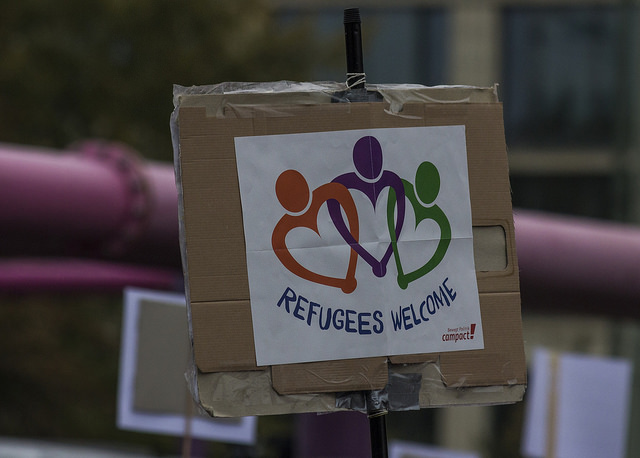As the Syrian refugee crisis continues, so do Canada’s — and Manitoba’s — obligations toward refugee resettlement. With a reported 900 Syrians to arrive in Manitoba before the end of this year, what have we learned since last autumn?
We believe the overall response from Canadians and Manitobans during the Syrian refugee crisis of late 2015 and early 2016 was overwhelmingly positive, despite vocal detractors. There was a flood of donations of money, furniture, material and time Canadians contributed toward Syrian refugee resettlement. There was a surge in initiatives to sponsor Syrian refugees under the private sponsorship program.
Such individual initiatives were matched by the unprecedented mobilization of resources from the federal Liberal and provincial NDP governments. Commitments were made by both levels of government when large groups of Syrian refugees began to arrive last December. The feds supported, among other things, an increase in temporary staff at Welcome Place, the housing arm of the resettlement organization the Manitoba Interfaith Immigration Council, to facilitate the housing and settlement of incoming Syrians. The province, adamant that not a single Syrian would stay in hotels, supported an increase in transitional housing.
Moreover, it expanded the rent supplement program, through which the province covered the difference between market rental rates and rent (geared to income) paid by tenants. Welcome Place personnel say large numbers of incoming Syrian government-assisted refugees were able to access rent supplemented units. The result: a greater number of affordable units in a greater number of neighbourhoods, with the better likelihood of meeting the needs of Syrian families.
The 928 Syrian refugees destined for Manitoba arrived between December 2015 and March 2016. Manitoba received an average of 1,167 refugees per year from 2008-13, Manitoba Immigration Facts reports. In other words, Manitoba’s refugee-resettlement community was responsible for the rapid resettling and housing of a number of incoming Syrians that vastly exceeded their regular responsibilities. That they were able to do so while avoiding placing Syrians in hotels reveals both their tremendous work and that governments made available the resources to do so. Of this group, 766 were government-assisted refugees and eligible to receive one year of federal government income support equivalent to provincial social services. Contrary to privately sponsored refugees who receive housing, social and emotional support from their sponsors, government-assisted refugees frequently arrive with no social or familial contacts.
For refugees of any designation, resettlement is a long and arduous journey, necessitating learning a new language and culture, finding employment prospects, navigating school systems and a myriad of other challenges a settled population simply cannot imagine. And it is in the initial period of resettlement we must provide the strongest supports we can muster to ensure positive settlement experiences. Such positive experiences benefit all of us.
Refugees from all countries require both temporary accommodations as well as some form of subsidized long-term housing in order to have the most successful resettlement possible and end the cycle of displacement and disruption. And while rent supplementation enabled a rapid response to the first cohort of Syrians, it should be noted such policy mechanisms were made available amid the long-term decline of social housing in Canada. It is crucial that it continues; however, it is but one of the policy options available to the provincial government. The other is to simply build and support more social housing.
This is important to consider as Syria is but one of many examples of violent displacement. If we can reasonably expect to provide refuge in Canada and Manitoba, we must think seriously about the mechanisms and resources at our disposal. That means changing our thinking from a singular, geographically specific crisis to providing reliable and durable supports for refugee-serving agencies and resettled refugees, so settlement is not subject to election cycles or when our interest happens to be piqued.
The tremendous upsurge in goodwill, effort and resources by Canadian society for welcoming and settling Syrian refugees is to be lauded. However, this alone cannot ensure the successful housing and settlement of refugees, whether they originate in Syria or elsewhere. And it is in mobilizing our collective resources for housing and settling such refugees that we give real teeth to our international humanitarian obligations.
Hani Al-Ubeady is a Housing Counsellor at Welcome Place, Emily Halldorson is an Independent Researcher, and Ray Silvius is Assistant Professor at University of Winnipeg. The authors are involved in a three-year project, sponsored by the Manitoba Research Alliance, studying the housing situations of former refugees in Winnipeg.
Photo: Leif Hinrichsen/flickr
Like this article? rabble is reader-supported journalism. Chip in to keep stories like these coming.



